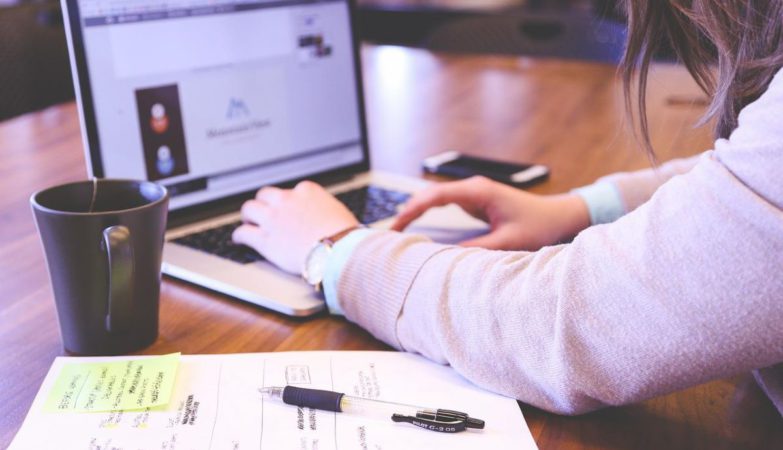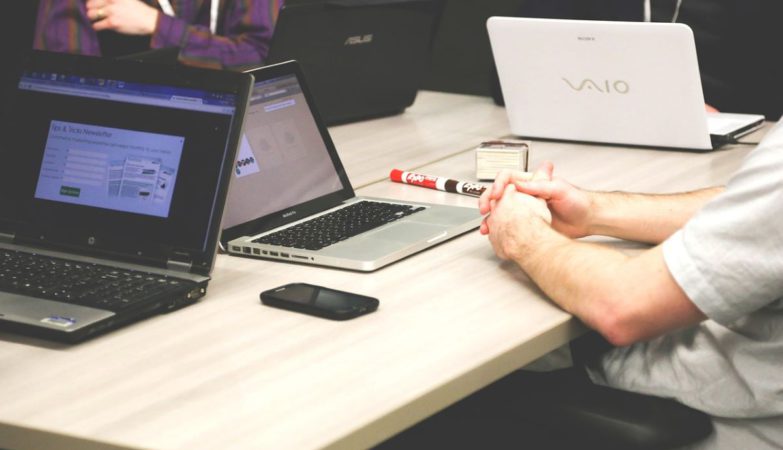In today’s fast-paced world, striking a balance between the real and digital worlds has become a paramount concern for individuals seeking to lead healthy and successful lives. The digital age has brought about unprecedented connectivity, information access, and convenience, but it has also led to challenges such as digital addiction, decreased face-to-face interactions, and an overall sense of disconnect from the tangible world. Achieving a balanced lifestyle, one that blends the best of both realms, is crucial for our well-being and success, both personally and professionally.
The Digital Age Dilemma
 The digital age has transformed the way we used to work, spend time with each other and just talk about time. Our smartphones, laptops, and other devices have become extensions of ourselves, providing a constant stream of information, entertainment, and opportunities for connection. While these advancements have undoubtedly improved our lives in many ways, they have also introduced challenges that, if left unaddressed, can lead to negative consequences for our health and success.
The digital age has transformed the way we used to work, spend time with each other and just talk about time. Our smartphones, laptops, and other devices have become extensions of ourselves, providing a constant stream of information, entertainment, and opportunities for connection. While these advancements have undoubtedly improved our lives in many ways, they have also introduced challenges that, if left unaddressed, can lead to negative consequences for our health and success.
Health Implications
Physical Health: Excessive screen time and a sedentary digital lifestyle can contribute to various health problems, including obesity, eye strain, sleep disturbances, and musculoskeletal issues. Spending too much time in the digital world can also lead to a lack of physical activity and neglect of self-care.
Mental Health: The digital world can be a double-edged sword for mental health. On one hand, it provides access to valuable resources for managing stress and seeking support. On the other hand, it can also be a source of anxiety, depression, and social isolation, especially when social media fosters unrealistic comparisons and unrealistic expectations.
Impact on Relationships
The digital age has redefined how we interact with others. While it has facilitated connections with people across the globe, it has also created barriers to meaningful, face-to-face relationships. The incessant use of smartphones during social gatherings, for instance, can erode the quality of our personal interactions, making it difficult to form deep connections and truly engage with others.
Professional Consequences
In the professional sphere, the boundaries between work and personal life have become increasingly blurred. With remote work and constant connectivity, individuals often find themselves tethered to their jobs around the clock. While this can increase productivity in the short term, it can also lead to burnout, decreased job satisfaction, and a diminished quality of life.
The Importance of Balance
To mitigate the negative effects of excessive digital immersion and to foster a more balanced lifestyle, it’s essential to prioritise a harmonious integration of both the real and digital worlds. Here are some strategies to achieve this balance and why it is crucial for our overall well-being and success:
Set Digital Boundaries
One of the key strategies for achieving balance is to establish clear boundaries for digital use. This includes defining specific times for digital activities such as checking emails, scrolling through social media, and watching videos. You can install a screentime app on your device to help you with it. If you have kids, consider a family time app that helps you to reduce the time spent on screens. By setting limits on screen time and creating designated tech-free zones in your home, you can ensure that digital distractions don’t dominate your life.
Prioritise Face-to-Face Interactions
While digital communication is convenient, nothing can replace the depth and authenticity of face-to-face interactions. Make an effort to prioritise real-world social connections by spending quality time with family and friends. Engaging in activities that involve personal interaction, such as group sports, hobbies, or volunteering, can help strengthen your bonds with others.
Practice Mindfulness
Mindfulness techniques can be powerful tools for maintaining a balanced lifestyle. By practising mindfulness, you can become more aware of your digital habits and their impact on your well-being. Techniques like meditation and deep breathing can help you stay present in the real world and reduce the compulsive need to check your devices.
Embrace Digital Detoxes
Regular digital detoxes, where you temporarily disconnect from your devices, can be incredibly beneficial. They allow you to reset and reevaluate your relationship with technology. Use this time to engage in offline activities that you enjoy, such as reading, hiking, or pursuing a hobby.
Foster a Healthy Work-Life Balance
In the professional sphere, it’s crucial to establish clear boundaries between work and personal life. Set specific working hours and avoid the temptation to check emails or work-related messages outside of those hours. A balanced work-life approach leads to improved job satisfaction, increased productivity, and better overall well-being.
Try to use technology to your advantage to improve the quality of your work. For example, rather than spending hours in front of the laptop to find out how your website is performing, you can go to the Terminology website for a health check. It uses the SEI tool to check the overall performance of your brand online. That way, you can easily find the pain points and work on it. This, in turn, will reduce your workload, giving you more time to spend with your loved ones.
Invest in Self-Care
Self-care is the key to remain healthy. Prioritise activities that nourish your body and mind, such as exercise, proper nutrition, adequate sleep, and spending time in nature. By taking care of yourself, you’ll be better equipped to handle the demands of both the real and digital worlds.
Seek Professional Help
If you find it challenging to strike a balance between the real and digital worlds, consider seeking professional help. Therapists and counsellors can provide guidance on managing digital addiction, improving interpersonal relationships, and addressing mental health concerns exacerbated by digital use.
Achieving this balance is going to take time. There would be days when you wouldn’t be able to, and that is fine. Just remember to make up for it to maintain a healthy relationship with yourself and others.







